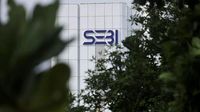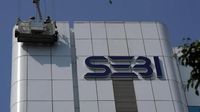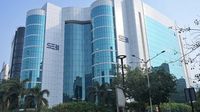The Securities and Exchange Board of India (SEBI) has taken significant action against Gensol Engineering Ltd and its promoters, Anmol Singh Jaggi and Puneet Singh Jaggi, citing serious financial mismanagement and fund diversion. On April 15, 2025, SEBI issued an interim order that bars the Jaggi brothers from acting as directors or holding any key managerial positions in the company. Additionally, Gensol and its associated entities have been prohibited from trading in the securities market until further notice, following a detailed investigation prompted by complaints of share price manipulation and defaults in loan repayments.
SEBI's order highlights what it describes as a "complete breakdown of internal controls and corporate governance norms" within Gensol. The regulator stated that the promoters were operating a publicly listed company as if it were a proprietary firm, misusing company funds for personal expenses and unrelated business activities. "The internal controls at Gensol appear to be loose, and through the quick layering of transactions, funds have seamlessly flowed to multiple related entities," SEBI noted.
Gensol Engineering, known for its engineering, procurement, and construction (EPC) services in the renewable energy sector, particularly solar power, had raised ₹977.75 crore in loans from institutions such as the Indian Renewable Energy Development Agency (IREDA) and Power Finance Corporation (PFC). However, only a fraction of these funds was utilized for their intended purpose. Of the total amount, ₹663.89 crore was earmarked for purchasing 6,400 electric vehicles (EVs), but the company reportedly only procured 4,704 vehicles for ₹567.73 crore, leaving ₹262.13 crore unaccounted for.
SEBI's investigation revealed that funds were allegedly diverted back to the promoters or their related entities. This included personal expenses such as luxury real estate purchases and high-end consumer goods. For instance, a substantial amount was traced to a luxury apartment in Gurugram's upscale 'The Camellias' project, which was acquired through a complex web of transactions involving Gensol's funds.
In its 29-page interim order, SEBI pointed out that the promoters submitted forged documents to mislead regulators, lenders, and credit rating agencies. The regulator found that Gensol had provided conduct letters from IREDA and PFC claiming that the company was regular in its debt servicing. However, both lenders denied issuing such letters, and the company had multiple defaults.
As part of the interim measures, SEBI has also suspended Gensol's recent announcement of a 1:10 stock split, which was intended to attract more retail investors. The regulator expressed concerns that allowing Gensol to proceed with the split would risk further investor capital, given the company's current financial instability.
Gensol's financial trajectory has been troubling. While the company's sales surged from ₹61 crore in FY17 to ₹1,152 crore in FY24, its stock has plummeted nearly 83% this year alone. On the day of SEBI's announcement, Gensol's shares fell nearly 3% to ₹129, reflecting deep investor concerns over the company's governance and financial practices.
Moreover, the company's market capitalization has drastically declined from a high of ₹4,300 crore to around ₹506 crore as of April 2025. The number of shareholders has dramatically increased from 155 in FY20 to approximately 110,000 by March 2025, but the promoter holding has also decreased from 70.72% to 35% during the same period.
SEBI's actions come amid a broader scrutiny of Indian startups, many of which have faced regulatory challenges in recent years. The Gensol case is particularly notable as it underscores the need for stringent corporate governance and accountability in the rapidly growing renewable energy sector.
In light of the findings, SEBI will appoint a forensic auditor to conduct a thorough examination of Gensol's accounts and related parties, with a report expected within six months. This further investigation aims to ensure transparency and protect the interests of investors, who have been significantly impacted by the alleged financial misconduct.
As the situation unfolds, investors are urged to exercise caution and remain informed about the developments surrounding Gensol Engineering and its promoters. The case serves as a stark reminder of the importance of regulatory oversight in maintaining market integrity and protecting investor interests.









